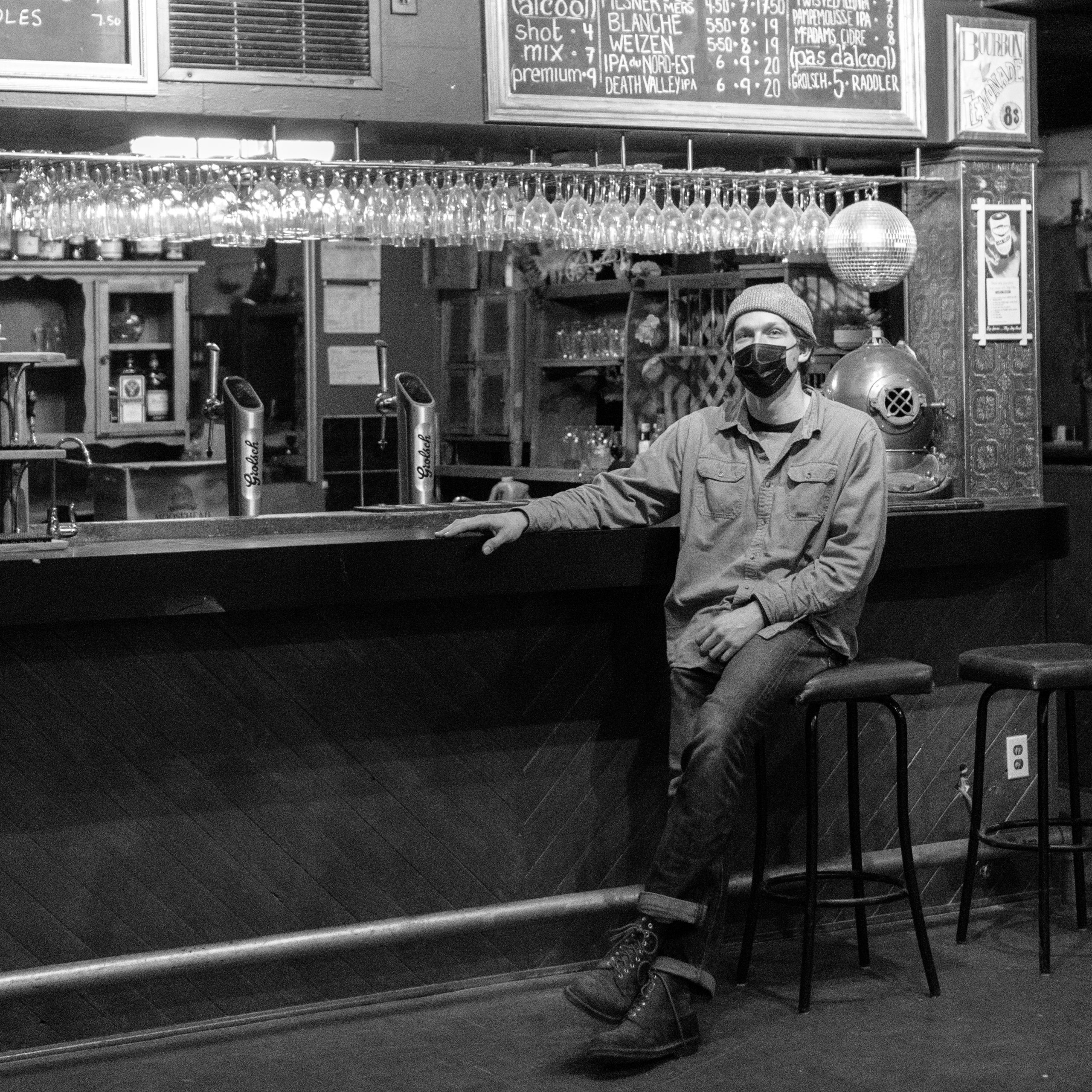An interview with Austin Wrinch of the Diving Bell Social Club
At 3956 Saint Laurent Blvd., behind a black door covered in graffiti, and three stories up a single flight of stairs is the Diving Bell Social Club. The venue opened in 2018 in a space previously occupied by the once-popular Champs sports bar.
Since their opening, the Diving Bell has acted as a multimedia performance venue, hosting concerts, stand-up comedy and drag shows.
However, the club has been closed since early March 2020, when the owners chose to close the venue in response to the then-burgeoning COVID-19 pandemic, not long before government regulations forced all venues to close.
Austin Wrinch is the co-owner and manager of the Diving Bell.
“We actually decided ourselves to kind of close before [the government] had fully mandated it. Basically, we’re an event space and a bar. So our activity, what we do at the space, is very much dictated by the community around us,” said Wrinch.
“At that point, we were saying, [we’d be closed] ‘til the end of the month of March 2020, which is kind of funny in retrospect.”
It’s disappointing that the Diving Bell has had to close for so long when 2020 was looking like it could be their best year yet.
“January and half of February was definitely a good time. It’s weird thinking back now … My memories of those shows don’t include any sort of COVID fear. It kind of set in like, two weeks later [that] it was just here to stay,” said Wrinch.
“If we were not hitting a stride, I would feel less confident about all this time passing and opening up again … If it wasn’t for COVID, 2020 was looking like it was going to be the best year ever for us. But it will again.”
The venue has stayed afloat thanks to rental subsidies and loans that have been made available to small businesses. Some emergency loans have been made available for small businesses, but they depend on a variety of criteria such as revenue. Some loans are interest-free while others have small amounts of interest. All of them are outlined under Canada’s COVID-19 response plan.
But, in the world of the pandemic, those loans don’t guarantee that you’ll be able to keep your business open.
“Yeah, you can get access to $20,000 or something for your business as a loan. [But] you know you have to start paying that back at a certain point, and then there’s interest after a certain point,” said Wrinch.
“When your business has been closed and it’s still unclear how long it’s going to be before you can actually be generating money with that business, it’s actually kind of nerve-racking, using more loan money, because that’s not your money. It’s all going to be paid back eventually.”
The staff at the Diving Bell hasn’t remained completely out of work.
“We had a lot of time to do a lot of things that we’ve always wanted to do in the space,” Wrinch said.
The team has been doing some renovations during its closure, which is great but can be very tricky to do when you have no idea when your business may be open again.
“We didn’t do crazy renovations, we did them all ourselves … We had to be very, very cautious on not spending too much money.”
Wrinch says the space has also been used by artists to do live streams and hybrid performances, as a way of making sure it gets some use during the pandemic.
As restrictions are gradually being lifted, theatres and larger venues were able to open on March 26, 2021. But because the Diving Bell is also a bar and a smaller standing room venue, it will be remaining closed.
Even when restrictions are lifted, the team at the Diving Bell won’t be desperate to open up if they don’t feel it’s safe. “We would definitely stay closed if we didn’t feel like it was a good idea,” said Wrinch.
But even if the space was to reopen, their business revolves around the artists who perform there. In the summer when restrictions were more relaxed, it was difficult to get people to come out and perform.
“The general response was ‘yeah, I’m definitely down. But I want to wait and see some other shows go first, to kind of gauge the vibe and make sure that it’s not pushing it.’ You don’t want it to feel irresponsible.”
Wrinch is confident the Diving Bell will be able to reopen but isn’t sure it will be happening anytime soon.
“It’s been definitely very tough the last year, just with the uncertainty and everything, and it’s by no means over,” said Wrinch
“People have been good with supporting local businesses, restaurants and stuff. But, I think that really when it comes down to reopening live performance halls in safe ways, it’s obvious [that] it’s going to come down to people showing the actual support, going and contributing to those communities, if they want them to survive,” Wrinch continued.
The Diving Bell Social Club will be back to hosting concerts of all kinds — as soon as it’s safe — at 3956 Saint Laurent Blvd., way up the stairs.
Photos by Kit Mergaert
